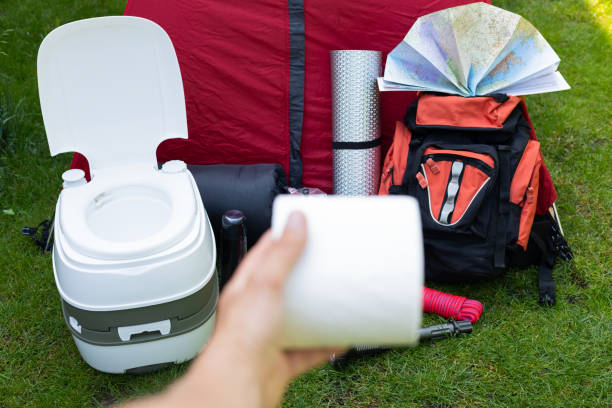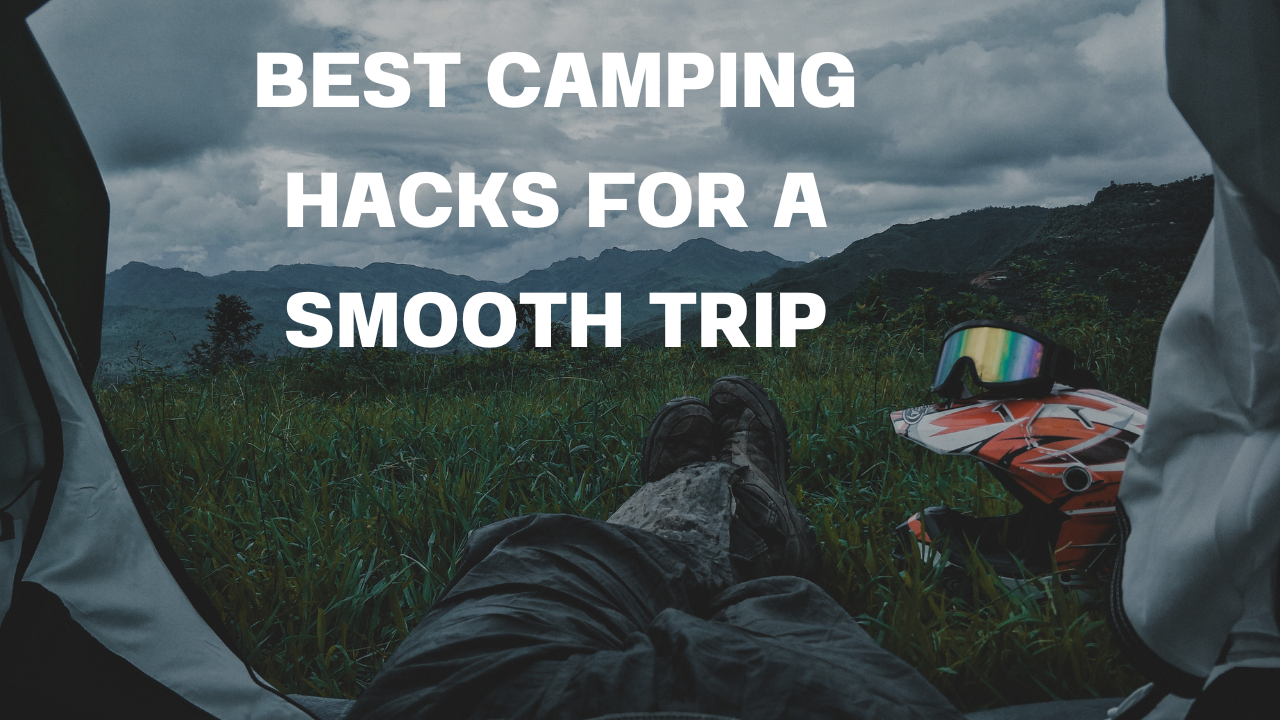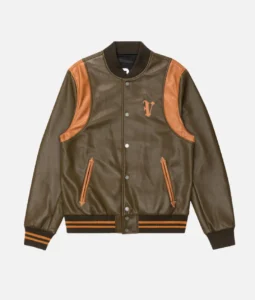Camping is a beloved outdoor activity that allows us to connect with nature, escape the hustle and bustle of daily life, and create lasting memories with friends and family. However, even the most experienced campers can benefit from clever tips and tricks to make their outdoor adventures more enjoyable and hassle-free.
In this comprehensive guide, we’ll explore a variety of camping hacks that will help you streamline your camping experience, from packing and organization to cooking and comfort. Whether you’re a seasoned outdoor enthusiast or a novice camper, these ingenious hacks will ensure your next camping trip is smooth, efficient, and unforgettable.
Packing and Organization Hacks
1. Roll Your Clothes for Space-Saving Efficiency
One of the simplest yet most effective camping hacks is to roll your clothes instead of folding them. This technique not only saves space in your backpack or duffel bag but also helps prevent wrinkles and makes it easier to find specific items without disturbing the entire contents of your bag. To take this hack a step further, consider using packing cubes or compression bags to organize your clothes by category or outfit, making it even easier to locate what you need quickly.
2. Create a Camp Kitchen Kit
Assembling a dedicated camp kitchen kit can save you time and frustration when preparing meals in the great outdoors. Use a large, clear plastic container with a lid to store all your essential cooking items, such as utensils, plates, cups, a cutting board, and basic spices. Include multi-purpose tools like a Swiss Army knife or a camping-specific multi-tool to minimize the number of individual items you need to pack. By keeping all your kitchen essentials in one organized container, you’ll spend less time searching for what you need and more time enjoying your camping experience.
3. Repurpose Everyday Items for Camping Gear
Get creative with everyday items to save money and space in your camping gear. For example, use an empty Tic Tac container to store spices or small items like matches or safety pins. Repurpose an old pillowcase as a laundry bag or stuff sack for your sleeping bag. Transform a plastic coffee container into a waterproof storage solution for toilet paper or other items that need to stay dry. By thinking outside the box and repurposing common household items, you can create custom camping gear that meets your specific needs without breaking the bank.

Campsite Setup and Comfort Hacks
4. Create an Improvised Lantern with a Headlamp and Water Bottle
Illuminate your campsite with a simple yet effective DIY lantern. Strap a headlamp around a clear water bottle, with the light facing inward. The water will diffuse the light, creating a soft, ambient glow that can illuminate a larger area than the headlamp alone. This hack not only saves space by eliminating the need for a separate lantern but also allows you to conserve battery power by using a single light source for multiple purposes.
5. Use Foam Floor Tiles for Added Comfort
Enhance the comfort of your tent floor by bringing along interlocking foam floor tiles. These lightweight and affordable tiles can be easily assembled to create a soft, insulating layer between you and the ground. Not only do they provide additional cushioning for sleeping, but they also help keep your tent floor clean and can be used as a comfortable seating area around the campfire. When it’s time to pack up, simply disassemble the tiles and stack them for easy transportation.
6. Create a Natural Insect Repellent Station
Keep pesky insects at bay by creating a natural insect repellent station at your campsite. Bundle together herbs like rosemary, sage, and lavender, and hang them around your camping area or near your tent entrance. These aromatic herbs not only add a pleasant scent to your campsite but also help repel mosquitoes and other flying insects. For added protection, consider bringing along essential oils like citronella, eucalyptus, or peppermint to apply to your skin or clothing as a natural insect repellent.

Cooking and Food Preparation Hacks
7. Pre-Plan and Pre-Pack Meals for Easier Cooking
Simplify your camping meals by pre-planning and pre-packing ingredients before your trip. Measure out dry ingredients for recipes and store them in labeled zip-lock bags or small containers. Prepare marinades or sauces in advance and freeze them in plastic containers or bags. Not only does this save time and reduce the number of ingredients you need to pack, but it also minimizes the risk of forgetting essential items. For added convenience, consider preparing entire meals in advance and storing them in vacuum-sealed bags that can be easily reheated at the campsite.
8. Use a Coffee Filter as a Makeshift Strainer
A clean coffee filter can serve as a versatile tool in your camp kitchen. Use it as a makeshift strainer for pasta or to filter water from natural sources. Coffee filters can also be used to strain bacon grease for later use in cooking or to remove sediment from coffee or tea. Their lightweight and compact nature makes them an excellent multi-purpose addition to your camping gear, taking up minimal space while providing multiple functions.
9. Create a Portable Spice Kit with Straws
Keep your favorite spices organized and easily accessible by creating a portable spice kit using plastic straws. Cut straws into smaller sections, seal one end with a lighter or small flame, fill with your desired spices, and seal the other end. Label each straw with the spice name using a permanent marker. This compact and lightweight solution allows you to bring a variety of spices without the bulk of traditional spice containers, ensuring your camp meals are always well-seasoned and delicious.

Safety and Emergency Preparedness Hacks
10. Create an Emergency Fire Starter Kit
Prepare for unexpected situations by assembling an emergency fire starter kit. Fill an empty plastic prescription bottle or small waterproof container with cotton balls soaked in petroleum jelly. These makeshift fire starters can ignite quickly and burn for an extended period, even in damp conditions. Include waterproof matches or a reliable lighter in the kit to ensure you always have a means of starting a fire when needed.
11. Use Reflective Tape for Nighttime Visibility
Enhance the visibility of your campsite and gear during nighttime hours by applying reflective tape to key items. Place strips of reflective tape on tent stakes, guy lines, and the corners of your tent to prevent tripping hazards and make it easier to locate your campsite in the dark. Apply reflective tape to your water bottles, backpacks, and other essential gear to quickly find them when needed. This simple hack can significantly improve safety and convenience during nighttime camping activities.
12. Create a Portable First Aid Kit in an Altoids Tin
Assemble a compact and portable first aid kit using an empty Altoids tin or similar small metal container. Fill the tin with essential first aid items such as adhesive bandages, antiseptic wipes, pain relievers, and any personal medications. Include a small multi-tool or pair of scissors, tweezers, and a few safety pins for added versatility. This pocket-sized first aid kit can easily be carried in a backpack or pocket, ensuring you’re prepared for minor emergencies without adding significant bulk to your gear.

FAQs (Frequently Asked Questions)
Q: What are some essential items I should always include in my camping gear?
A: Essential camping items include a tent, sleeping bag, sleeping pad, multi-tool, first aid kit, headlamp or flashlight, water filtration system, fire-starting materials, and appropriate clothing for the weather conditions.
Q: How can I keep my food fresh and safe while camping?
A: Use a high-quality cooler with ice packs, store food in airtight containers, keep raw and cooked foods separate, and use proper food storage techniques to prevent attracting wildlife. Consider using a bear canister in areas where bears are present.
Q: What are some easy and nutritious meal ideas for camping?
A: Simple and nutritious camping meals include foil packet dinners, one-pot pasta dishes, pre-made breakfast burritos, trail mix, and no-cook options like sandwiches and wraps. Plan meals that require minimal preparation and cooking time for added convenience.
Q: How can I stay warm while camping in colder weather?
A: Layer your clothing, use a sleeping bag rated for the expected temperatures, insulate your sleeping pad, wear a hat and gloves, and consider using hand and foot warmers. Eat warm, high-calorie meals and stay hydrated to help maintain body heat.
Q: What are some eco-friendly camping practices I should follow?
A: Follow Leave No Trace principles, use biodegradable soap and toiletries, properly dispose of waste, minimize campfire impact, and respect wildlife and vegetation. Choose reusable items over disposable ones whenever possible.
Q: How can I protect myself from insects and ticks while camping?
A: Wear long-sleeved shirts and pants, use insect repellent containing DEET or picaridin, treat clothing and gear with permethrin, and perform regular tick checks. Consider using a head net in areas with heavy insect populations.
Q: What should I do if I encounter wildlife while camping?
A: Remain calm, make yourself appear larger, back away slowly, and give the animal plenty of space. Never approach, feed, or attempt to touch wild animals. Store food properly to avoid attracting wildlife to your campsite.
Q: How can I improve my sleep quality while camping?
A: Choose a comfortable sleeping pad or air mattress, use a pillow or stuff a jacket into a pillowcase, wear clean, dry clothing to bed, and consider using earplugs or a sleep mask to block out light and noise.
Final Words
By incorporating these clever camping hacks into your outdoor adventures, you can elevate your camping experience to new heights of comfort, efficiency, and enjoyment. From ingenious packing techniques to creative cooking solutions and safety precautions, these tips and tricks will help you make the most of your time in nature.
Remember that the key to a successful camping trip lies in proper preparation and a willingness to adapt to the challenges and joys of outdoor living. As you continue to refine your camping skills and discover new hacks along the way, you’ll find that each trip becomes smoother and more rewarding than the last. So pack your bags, embrace the spirit of adventure, and set out to create unforgettable memories in the great outdoors. Happy camping!









